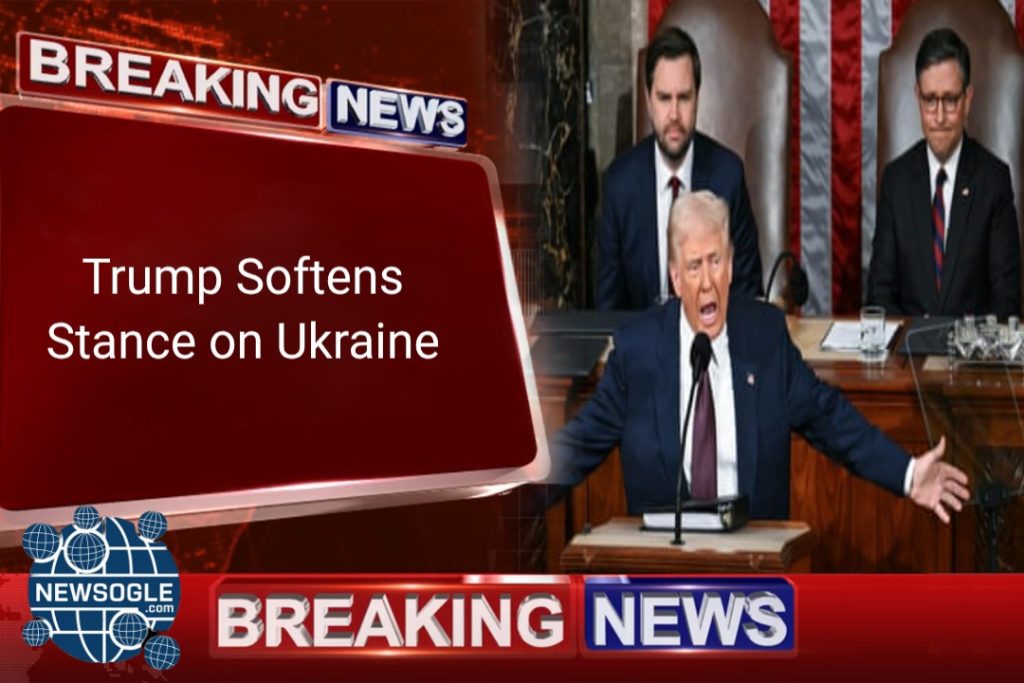
Diplomatic Crisis Deepens: A Global Showdown Over the Future of Ukraine
The international spotlight is firmly fixed on Geneva, Switzerland, where high-level officials from the United States, Ukraine, and key European nations are gathering to discuss President Donald Trump’s controversial 28-point proposal aimed at ending the protracted conflict in Ukraine. The summit comes amid a firestorm of controversy, forcing the US President to clarify his position, stating that the draft is “not my final offer.”
President Trump made the statement on Saturday following a massive international and domestic backlash, particularly from Kyiv, where officials and commentators drew stark parallels between the proposal and the disastrous 1938 Munich Agreement. The President told reporters at the White House, “We’d like to get to peace. It should’ve happened a long time ago… we’re trying to get it ended, one way or the other we have to get it ended.”
His signal of potential flexibility offers a slight diplomatic opening but does little to quell the immediate anxiety surrounding the plan’s stringent and, to many, punitive terms against Ukraine.
The Controversial Terms: What is in the 28-Point Plan?
The core of the diplomatic tension lies in the detailed demands outlined in the document, which Kyiv views as a blueprint for its defeat and a precursor to future Russian aggression. Key provisions of the plan, reportedly drafted with input from both US and Russian representatives, include:
- Territorial Cessions: The plan explicitly calls for Ukraine to cede territory it currently controls to Russia, essentially legalizing Moscow’s occupation and military gains.
- Military Reduction: Kyiv would be required to significantly reduce the size of its army and surrender its long-range weapon capabilities.
- Amnesty for War Crimes: Perhaps the most inflammatory provision, the plan reportedly rules out sanctions for Russian war crimes and includes a full amnesty for Moscow’s forces, an element Ukrainians view as an “insult” to victims in places like Bucha and Mariupol.
- NATO and EU: The framework rules out NATO membership for Ukraine and places severe conditions on its future EU accession.
- Peacekeeping: It rules out a European peacekeeping force, leaving security arrangements ambiguous and raising concerns about enforcement.
Zelenskyy’s Impossible Choice: Dignity or Alliance
Ukrainian President Volodymyr Zelenskyy has been placed in an excruciating diplomatic corner, facing what he described in a solemn address as an “impossible choice.” Trump has set a deadline—reportedly until Thursday—for Zelenskyy to sign the document. The Ukrainian leader warned that his country is being forced to choose between “keeping its national dignity” and “losing a major partner in the shape of the US.”
President Zelenskyy, though engaging constructively, has been resolute on Ukraine’s red lines. Speaking on Saturday, he reiterated that any “real or dignified peace” must be founded on “guaranteed security and justice.” He has consistently maintained that he cannot violate the Ukrainian constitution, which enshrines the country’s current borders, effectively ruling out territorial concessions of the occupied regions, including Crimea and the eastern Donbas.
Zelenskyy has appointed a negotiating team led by his chief of staff, Andriy Yermak, to meet US counterparts in Geneva, signaling that while rejection of the current terms is firm, the door to dialogue remains open to find “possible parameters of a future peace agreement.”
Global Condemnation and the Appeasement Parallel
The backlash against the Trump proposal has been swift and severe, extending beyond Kyiv to key European and international bodies.
- European Leaders: The draft has been widely condemned by former European leaders. Finland’s former Prime Minister Sanna Marin called the plan a “catastrophe,” not just for Ukraine but for “all of the democratic world,” cautioning that showing weakness would invite “more aggression and conflicts.” The former Prime Minister of Belgium, Guy Verhofstadt, invoked Winston Churchill, defining the agreement as “appeasement” and warning, “Europe must choose again: appeasement or our values, imperialism or freedom.”
- G20 & EU: At a recent meeting, G20 leaders and the European Council issued a rare joint statement that explicitly pushed back on the Trump plan, saying it required “additional work.” They stressed that EU and NATO members would need to be consulted on provisions that directly affect the security architecture of the continent.
Domestic US Controversy and Russian Interpretation
The plan has also generated controversy within the US political landscape. Claims circulated among US senators that the proposal was a “wish list of the Russians,” though the US State Department strongly disputed this, labeling the claim “blatantly false.” Deputy Spokesman Tommy Piggott insisted the proposal was authored by the US as a “strong framework for ongoing negotiations” based on input from both warring parties.
Meanwhile, Russian President Vladimir Putin has openly welcomed the Trump deal, which observers note concedes “barely anything” from Moscow. This disparity in benefit is central to the Ukrainian public’s hostile reaction, where citizens interviewed expressed fear that signing the deal would mean giving up their freedoms and inviting further control from Russia.
The Road Ahead at the Geneva Summit
As delegations converge in Geneva, the stakes could not be higher. The summit is not merely a negotiation over territory, but a test of global resolve and a defining moment for the post-invasion European security order.
While President Trump’s declaration that the offer is “not final” provides a slim margin for negotiation, Kyiv’s delegation faces the monumental task of securing a deal that respects Ukraine’s sovereignty and guarantees its future security, while simultaneously preserving its vital relationship with the United States. The challenge lies in converting a Russian-friendly “framework” into a path toward “guaranteed security and justice” without abandoning the core principles of national dignity and territorial integrity. The outcome of the Geneva talks will echo far beyond the Swiss borders, shaping geopolitical strategy for years to come.
SEO Keywords and Search Terms:
- Trump Ukraine Peace Deal
- Geneva Summit Negotiations
- Ukraine-Russia Conflict Resolution
- President Trump Foreign Policy
- Trump Not Final Offer
- Volodymyr Zelenskyy Ultimatum
- Future of Ukraine Sovereignty
- NATO EU Membership Ukraine
Contact Address and Official Information
For official information regarding the Geneva summit and related US policy, please refer to the White House and Department of State official channels. For the primary source of this news post, consult the relevant international news publications.
Official White House Contact (General):
The White House, 1600 Pennsylvania Avenue NW, Washington, D.C. 20500
U.S. Department of State:
2201 C Street NW, Washington, D.C. 20520
(Refer to the official State Department website for press briefings and official statements regarding the Geneva negotiations.)






